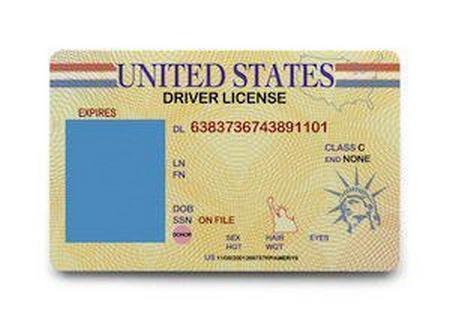Recent Blog Posts
Divorce by Publication: The Case of the Missing Spouse
 In Illinois, couples may decide to divorce either by claiming that a divorce is fault-based or no fault-based. A no fault divorce basically provides that there are no specific reasons for which a couple may decide to divorce, other than their desire to separate. However, there are fault-based reasons by which a spouse may use.
In Illinois, couples may decide to divorce either by claiming that a divorce is fault-based or no fault-based. A no fault divorce basically provides that there are no specific reasons for which a couple may decide to divorce, other than their desire to separate. However, there are fault-based reasons by which a spouse may use.
Fault-Based Grounds for Divorce in Illinois
The following are the fault-based grounds for a divorce in Illinois:
- Impotence throughout the marriage;
- The spouse was already married at the time of the second marriage;
- Adultery;
- Habitual drunkenness for two years;
- Use of addictive drugs for period of two years;
Wintry Weather Causing Motor Vehicle Accidents
Warning: stripos(): Offset not contained in string in /home/ocvaws/public_html/system-joomla-shared-core/components/com_easyblog/easyblog.php on line 6
Without Papers: The Undocumented Immigrant License Program
 In most states of the union, undocumented immigrants are not able to obtain a driver’s license. They are, indeed, not supposed to be driving on American highways. However, the reality is that immigrants are here. They work. And not everyone has access to public transportation. Undocumented immigrants will drive, and in Illinois and nine other states, plus Puerto Rico and the District of Columbia, steps are being taken to regulate it.
In most states of the union, undocumented immigrants are not able to obtain a driver’s license. They are, indeed, not supposed to be driving on American highways. However, the reality is that immigrants are here. They work. And not everyone has access to public transportation. Undocumented immigrants will drive, and in Illinois and nine other states, plus Puerto Rico and the District of Columbia, steps are being taken to regulate it.
The Pros
There are multiple advantages to accepting the reality of undocumented drivers and reacting accordingly. First, when people obtain driver’s licenses, they are part of the system, so to speak. This means they are being regulated—by the need to purchase auto insurance, and by the need to obey traffic laws. When California initiated its program to grant licenses to the undocumented in 2013, it had the full backing of major insurance players in the state—the requirement to carry insurance makes people more careful on the road, and fewer uninsured and unlicensed drivers means a smaller burden on our already-overworked court system.
How Life Vests Affect Your Boating Accident Claim
Warning: stripos(): Offset not contained in string in /home/ocvaws/public_html/system-joomla-shared-core/components/com_easyblog/easyblog.php on line 6
Revenge Porn Law Signed by Illinois Gov. Quinn at the End of 2014
 At the end of a marriage or relationship, it is normal for there to be feelings of hurt, anger, frustration and hate. Generally, people who are dealing with these feelings find ways in which to vent out these negative feelings so that one day they may piece themselves together and hopefully find happiness, whether in themselves or later with another. Part of the venting may take place through friends, family, a therapist, and/or social media. However, what one vents out onto social media may have a serious and criminal effect on a person’s future.
At the end of a marriage or relationship, it is normal for there to be feelings of hurt, anger, frustration and hate. Generally, people who are dealing with these feelings find ways in which to vent out these negative feelings so that one day they may piece themselves together and hopefully find happiness, whether in themselves or later with another. Part of the venting may take place through friends, family, a therapist, and/or social media. However, what one vents out onto social media may have a serious and criminal effect on a person’s future.
The Crime of “Revenge Porn” Nationwide
In only a couple states has there been drafting of regulations against what has become known as “revenge porn.” California was the first state to pass legislation and convict someone for “revenge porn.” Illinois finally passed its own specific legislation, criminalizing the trend. Governor Pat Quinn signed into law in the last few days of December the revenge porn legislation categorizing the crime as a felony under Illinois law.
Study Finds Illinois 3rd Safest State for Teen Drivers
Warning: stripos(): Offset not contained in string in /home/ocvaws/public_html/system-joomla-shared-core/components/com_easyblog/easyblog.php on line 6
The Convention against Torture
 While the United States has had its differences with the leadership of the United Nations (UN), she has also been a signatory to several groundbreaking treaties. One of them is the U.N. Convention Against Torture (CAT), signed in 1984 and ratified 10 years later by the U.S.A.
While the United States has had its differences with the leadership of the United Nations (UN), she has also been a signatory to several groundbreaking treaties. One of them is the U.N. Convention Against Torture (CAT), signed in 1984 and ratified 10 years later by the U.S.A.
The language of this convention has allowed some people to claim a form of immigration relief in the United States—yet it is still misunderstood and misinterpreted. An individual who does not qualify for asylum may still qualify for CAT protection.
The Convention in U.S. Law
CAT relief is perhaps best suited for those who specifically fear being tortured, rather than those with a generalized fear of future persecution. Not all forms of persecution qualify as torture. The standard is actually higher than the one for asylum. In an asylum case, you must show credible fear of future persecution. However, in CAT cases, you must show it is “more likely than not” that you would be tortured upon return to your home country.
When is an Employer Liable for an Employee's Conduct?
Have you been in a car accident caused by someone driving in a vehicle provided by his or her employer? Were you injured in the accident? If so, you may have a claim against the employer. In Illinois, an employer may be liable at law for the actions of their employees, which includes car accidents. For instance, when an accident is caused by someone who is driving an employer-provided vehicle, the employer may be liable under respondeat superior.
Respondeat Superior
Respondeat superior is a legal doctrine that holds an employer responsible for the wrongful acts of an employee. An employee is a worker over whom the employer has a certain amount of control. If an employee/employer relationship exists, the employer may be liable for the actions of the employee.
Liability arises when an employee acts within the scope of the job duties outlined by his or her employer. In essence, if an employee acted within the scope of his or her employment, the employer may be liable for injuries sustained by others due to the employee's actions. Illinois courts have interpreted "within the scope of employment" in many different ways. Thus, it is important to work with an attorney in the event of an accident.
Crackdown on the Abandonment and Transfer of Unwanted Adopted Children
 Adoption in the United States can be a rigorous process. Prospective parents must submit a cumbersome amount of data to adoption agencies; everything from their Social Security data to their home life is scrutinized under the microscope, and after an extensive waiting period, the couple eventually become parents.
Adoption in the United States can be a rigorous process. Prospective parents must submit a cumbersome amount of data to adoption agencies; everything from their Social Security data to their home life is scrutinized under the microscope, and after an extensive waiting period, the couple eventually become parents.
Adoption through an agency requires serious hoop-jumping, and with good reason: agencies want to ensure that the children are placed in good home situations with food, clothing, an opportunity to receive education, and loving parents to care for them. This is the idyllic scenario and not one that always comes to fruition as parents and adopted youth may find themselves incompatible. However, parents cannot just return their adopted children just because they are not up to their expectations … or can they?
Update: New Driver Laws in 2015
As the New Year gets underway, it is important drivers stay informed on the changes to Illinois automobile law to reduce accidents and injuries.
New Driver Laws in Illinois
Senate Bill 1898 increased the minimum mandatory coverage for liability auto insurance policies in Illinois. It also increases the amount of money that is sufficient to satisfy a judgment in a motor vehicle accident lawsuit. The changes will allow for victims of accidents to recover more money for their injuries, medical expenses, and property damages.
For bodily injury or death of a single individual, the coverage increases from $20,000 to $50,000; bodily injury or death of more than one person increases from $40,000 to $100,000; and for injury or destruction of others' property, the coverage increases from $15,000 to $40,000. Increasing the minimum liability insurance benefits for injured victims of serious car accidents allows them to recover more money from the insurance company of the other party.
 English,
English,
 Spanish,
Spanish,
 Polish,
Polish,
 Urdu
Urdu













 Make a Payment
Make a Payment



